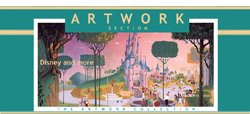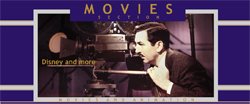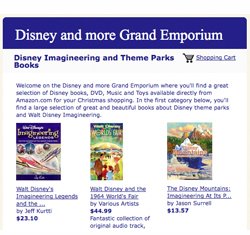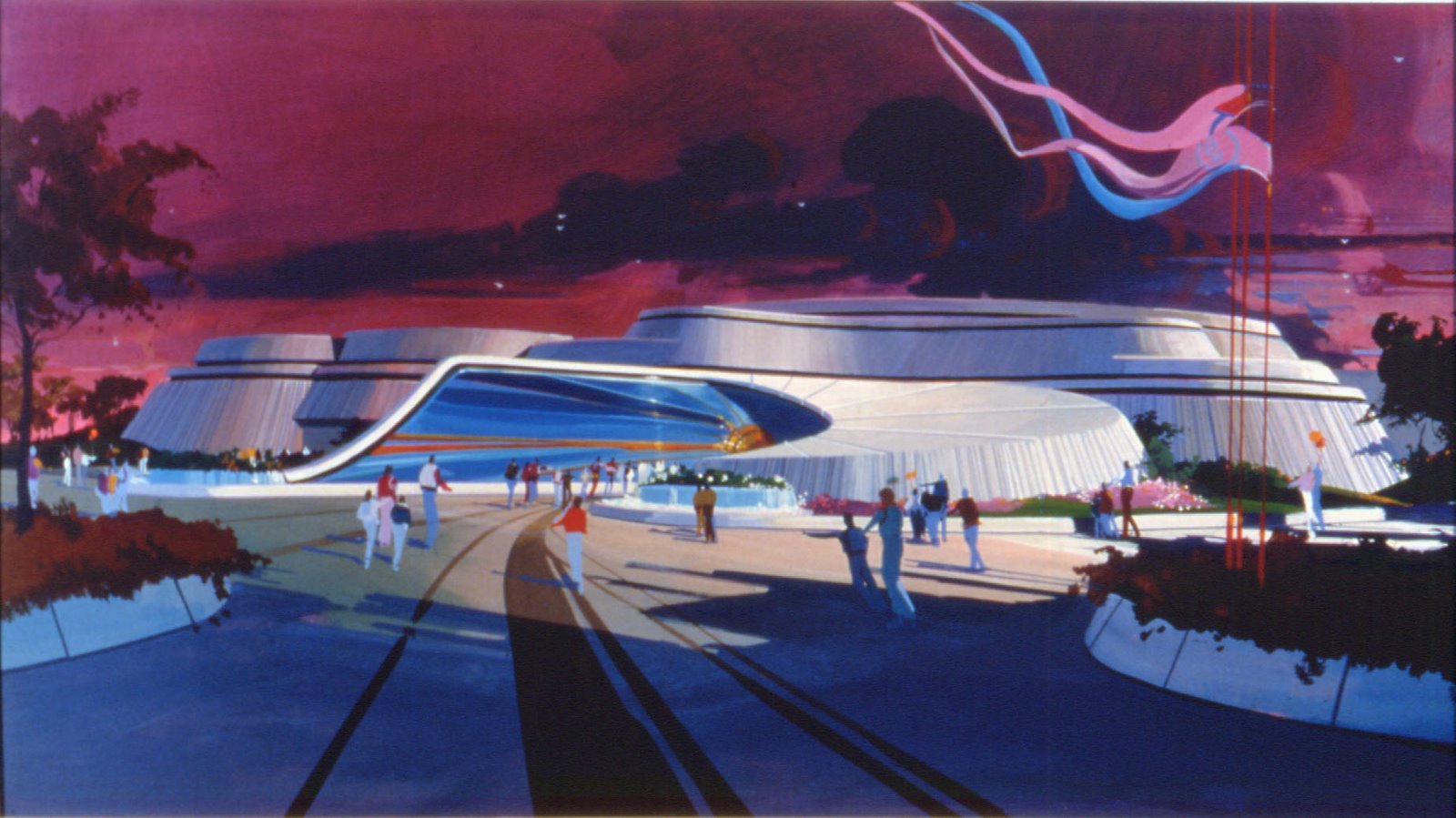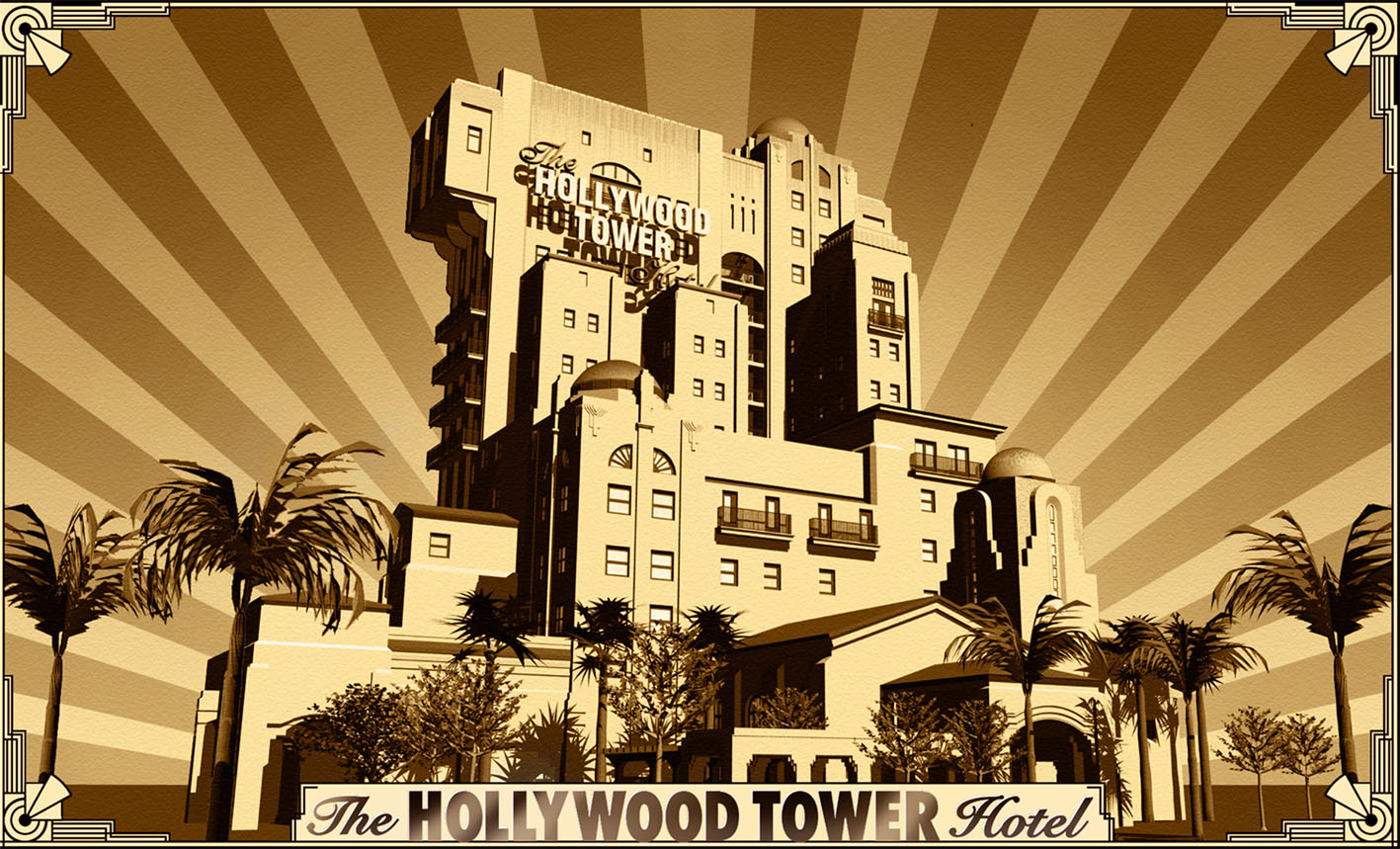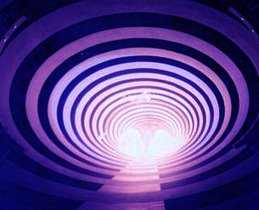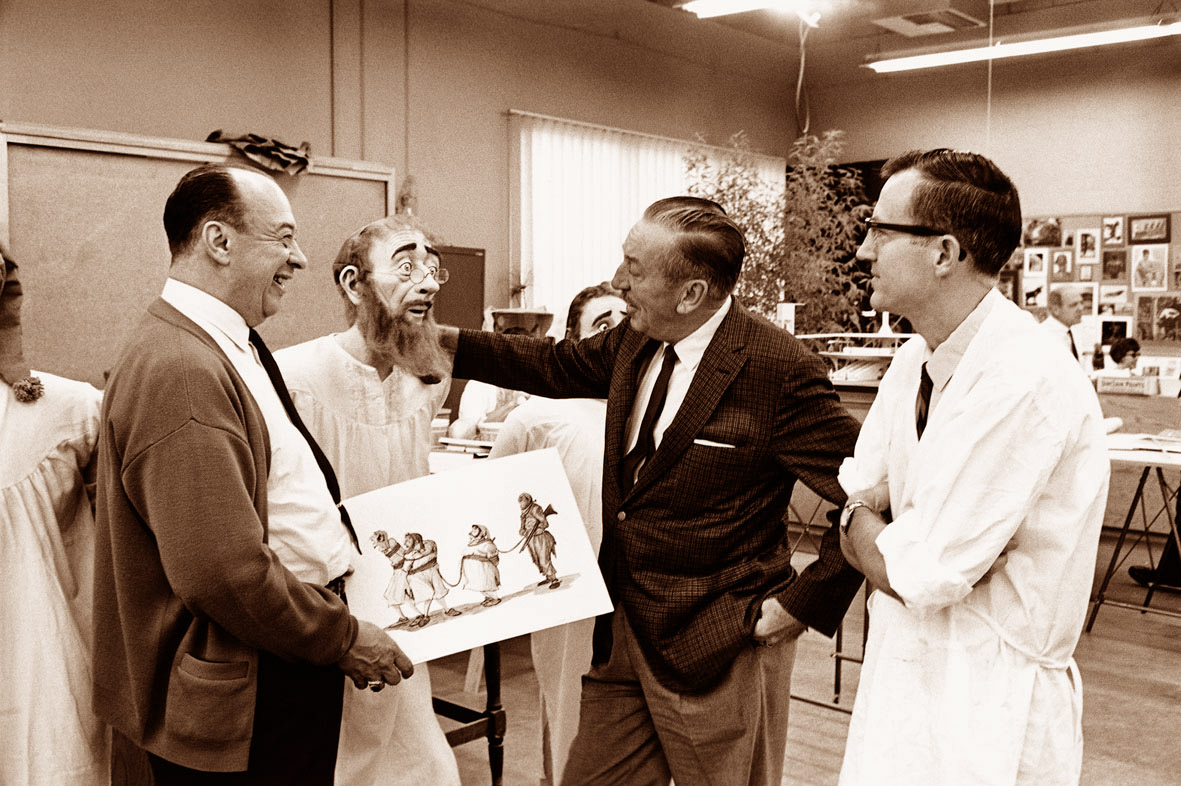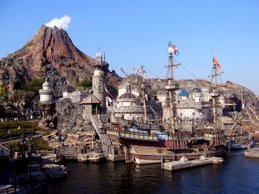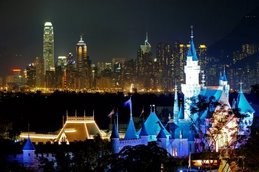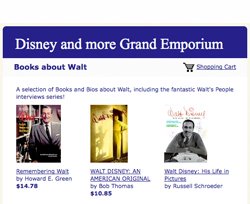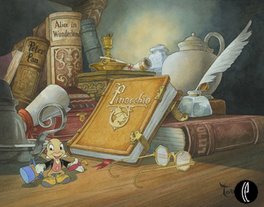
Since 1994 Disneyland Paris fans are dreaming of the Little Mermaid attraction concept. Designed by Tony Baxter the attraction was supposed to be build after the park's opening. As we know it's in California Adventure that the Little Mermaid dark ride will finally be build. Disneyland Paris fans will have to wait a bit, but if everything goes fine the attraction should come at DLP in the near future.
Thanks to Lee Mac Donald and Lindsay Cave from the excellent "Tales from a Laughing Place" Magazine i have the pleasure to post on Disney and more this great interview of Tony Baxter previously published in Tales from a Laughing Place Issue 8. The article includes pictures of the models and renderings for the attraction's storyboards. At the end of the article, you will find the Little Mermaid virtual ride video, as it was envisioned for Disneyland Paris. The California Adventure version should be more or less the same.
Part of your (virtual) World
An Interview of Tony Baxter, Article by Lee Mac Donald
When I saw The Little Mermaid on the big screen I got the feeling that we were finally back in the animation business,” Tony reminisces. “The movie was a truly unforgettable masterpiece and for us at WDI that was critical as we had virtually run out of properties to use. Splash Mountain was the result of going through the library and saying ‘Gosh, there is only one product left with amazing places and fun characters for us to develop into a ride.’ We had been gifted a brand new classic.”
At that time Tony and his entire creative team was racing to complete designs for EuroDisneyland as the park was already in the construction phase. However their focus was not limited to preparation for opening day. “We had already earmarked The Little Mermaid and Beauty and the Beast as two properties to develop for the first batch of additional capacity. If you look at Sam McKim’s opening day park map you can clearly see both on there,” Tony reveals. “For Paris The Little Mermaid area would have been directly opposite from Pizzeria Bella Notte. We had developed Fantasyland to reflect the countries that were the five main draws for the park and for Italy we only had Lady & The Tramp as an appropriate Disney property. Opposite the restaurant you can still see the berm populated with Italian Cypress trees where Eric’s southern Mediterranean Palace would have been located. We also had two other The Little Mermaid attractions for that area with an Ursula octopus ride and a themed carrousel that is now the plateau queue area for it’s a small world.”


The Beauty and the Beast attraction was to have been sited between the Auberge de Cendrillon restaurant and Fantasia Gelati and was described by Tony as an ‘Enchanted Tiki Room-type show’ where the guests would enter into a spooky castle which suddenly springs to life with a combination of live performers and Audio-Animatronics©. The hill of grass that would have been the entrance to the attraction is still there with a floral piece in the center as the area was built up to disguise the backstage area of the restaurant and castle.
“To distribute the costs we jointly developed the projects for Disneyland to go where Videopolis was at that time. It fitted both locations well and everybody thought it would go,” Tony continues. “We built models and mock-ups as the key was cracking the illusion of believing that you are above and below the water’s surface. Every attraction has an Achilles’ heel in development and I thought that was the critical component to this project’s potential success.”
In order to win support from the Studio Tony invited Jeffrey Katzenberg and the lead animators on The Little Mermaid to WDI. They were able to stand on a platform ten feet above the models and actually put their hands through the waterlevel. The models enabled the animators to see their created worlds in three-dimensional form and they immediately endorsed the project. However as the Scottish poet Robert Burns reminded us ‘the best laid plans of mice and men often go awry.’
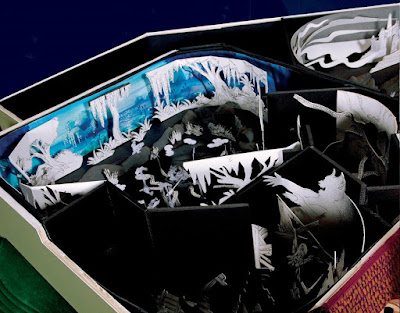

“Once we opened EuroDisneyland we knew that we needed two things; thrill rides and quick capacity,” Tony admits. “We had literally picked the crown jewels of the Disneyland model and I think we opened that park environment richer than any we have ever done before. However we needed things to distribute the crowd and let them vanish into the environments. So we added the Passage of Aladdin and Fort Comstock walk-throughs, a new train station, Casey Jr., Le Pays des Contes de Fées [Storybook Land Canal Boats] and Les Mystères du Nautilus [Mysteries of the Nautilus]. We also built Indiana Jones and the Temple of Peril as the park only had Big Thunder Mountain in the original attraction mix that was a thrill ride so the park needed something else. We were able to put in about 13,000 guests per hour capacity with those additions. That was all within the working capital requirements of The Little Mermaid and Beauty and the Beast attractions which had capacities far south of that figure so it made sense for us to drop those initial plans. It also allowed us to go right on in with Space Mountain.”


“The other issue was that The Little Mermaid turned out not to be a fluke,” Tony continues. “The studio had a series of successes and so it became harder to lavish attention on just this one movie. To be honest we never really caught up at WDI with every movie of that period being a box office triumph. Most of those movies came to the parks as festivals, parades and shows which are quicker and easier to mount. By ’94 everything was about The Lion King and so Ariel got put aside and we didn’t revisit it until the studio came over recently to see what we had developed for The Little Mermaid. We didn’t have the CG technology that we have today and so it is cool to see it in CG. For the Subs at Disneyland we were able to put the entire attraction in the computer and then ride the attraction from any seat in 3D. We worked alongside the studio’s animators to create the ride-through. They wanted to animate it like a movie with cutaways but I had to explain to them that we are not creating a formative movie but a window that enables us to see the attraction. You cannot cut away to another scene as it has to be a continuous tour. They also wanted to fully animate the characters but I wanted to go back to the way it would have been in ’92 as it was in the vein of traditional cycle animation of our dark rides without fully functioning Audio-Animatronics©.”
“When we were developing EuroDisneyland we were looking to find areas of deficiency in our line-up,” Tony says. “When The Little Mermaid and Beauty and the Beast came along we were thrilled to be able to get two new pieces into our park vocabulary. They were both fresh and adjusted thematically and emotionally for a new audience. The struggle that Ariel goes through with her father and then going out on a limb for what she believes is right is very different to Snow White who just wants someone to wash and cook for! Belle was even more modern as she has no interest in the hunk that is drooling over her. These heroines were profoundly more relevant to today’s audience and young kids really did identify with them and if you capture that spirit at a particular age they will carry it with them through life. WDI needs to get those moments into the parks for each new generation. For fifteen years or so we lost touch with the audience film-wise so WDI had to initiate a new direction as the studio was not producing product that was relevant to that generation. So we pushed for George Lucas and Star Wars. I’ve always believed that the key to Disneyland’s success is a being a reflection of the popular culture that is captivating the world at that time.”

As mentioned earlier the key innovation was the ability to believably create two worlds for Ariel and her friends to inhabit namely the submarine environment of merfolk and fish and above the sea’s surface where Eric resides. “Now no-one was going to be wearing a wetsuit in this dark ride so you did need to suspend some disbelief to enjoy the experience,” Tony jokes. “We would have approximated the water’s surface with Eric and Ariel in front of you. The boat would have disrupted that surface and everything that touched the water’s surface would have had a ring of fiber optics radiating out like ripples. Your brain has been conditioned over a lifetime to only consider that to be real. So when the ride vehicle dips below the surface you would have thought why didn’t I get wet? The two worlds would have looked very different with the gaudy colors of Sebastian’s Under the Sea number being very different to the tone of Eric’s ship emerging from the fog or the glade in Kiss the Girl. The ride would have been able to glide between those two worlds and some of the show scenes were stacked so you could see another portion of the ride below or above you. I am intrigued by the idea of seeing something from a different vantage point. We toyed with it at Pirates of the Caribbean in Paris where you look down at the battle and village from the ramparts.”




One technical development that did emerge from The Little Mermaid dark ride was the ability to synchronize onboard audio. “The real breakthrough for this attraction was the creation of a device that allowed the ride vehicle to understand exactly where it was in the attraction, and without having to change the pitch, adjust the delivery of information to match,” Tony proudly explains. “Eventually it was first employed on Space Mountain at Disneyland Paris. It was actually more critical there as a light car could arrive back in the station some twenty seconds earlier than a heavier car. We needed to be able to deliver the key audio punchlines at the same point in every dip, turn and loop. I always feel it is the technical things that don’t contribute to the obvious part of the show that are the really amazing parts of what we do at WDI. It is such an amazing effect to be able to punch the ride on the key kinetic moments and to ensure that there is perfect synchrony every time.”




If you have seen the virtual ride-through and are familiar with the movie’s story arc you might feel a disconnection between the two. That was a deliberate move on Tony’s part. “I am stickler for playing with the sequencing as I believe that the most boring ride we can do is a book report of the movie,” Tony asserts. “Our attractions are more about the emotion and environments that you come through and I just didn’t want to take the good with the bad just because that is what you saw in the theater. We set the ride up by showing you two people that belong in two different worlds and they want to be together. The first major scene was "Under the Sea" as it validates the notion that we are beneath the surface in their world and this is contrasted by the villainy of Ursula in her dark grotto. Ultimately we needed to be honest to the emotions and feelings of the story rather than just laying it all out again. Pinocchio at Disneyland is the perfect example of a book report of a dark ride which is frustrating as scenes become small vignettes and you cannot bathe in that environment as we tried to get every nuance of the story in that short ride. In my opinion Disneyland’s Peter Pan’s Flight has the best script as all that is important is the phrase ‘Come on everybody and here we go!’ as we fly out the window. Ray Bradbury wrote to Walt saying ‘I will be eternally grateful that you allowed me to fly out of a children’s bedroom out over a moonlit London in a pirate galleon’ and that is what it is all about. We don’t tell the story of Peter or the Darlings and they just become ciphers to set the stage and gently remind you of the story. It is about the experience rather than being forced to drink in storyline point.”



For an organization that was often shrouded in secrecy in the past WDI seem to be willing to embrace a new age of disclosure with the general public with this DVD bonus featurette. “I think this a great way of getting a new brand on to Disney DVDs that people can look forward to in the future,” Tony sums up. “I’m sure we will get a lot of comments from guests asking why we didn’t build it though! Hopefully this test will go well and we can contribute to future releases. Ultimately it keeps the public aware of WDI and the things we do for the parks.”
I’m sure there are plenty of people out there that would love to have access to rummage through the WDI archives for shelved projects.
Any volunteers?
Once again, I want to add for those of you who don't know the "Tales of the Laughing Place" magazine that it is a fantastic magazine about Disney theme parks, full of great reports or interviews with WDI Imagineers like this one with Tony Baxter. The latest issue, no 14, of this gorgeous magazine will be released very soon, and among the great reports this issue will include a "Story of Tokyo Disneyland" article. More infos on the new issue 14 HERE.
Photos and video: copyright Disney.
Many thanks to Lee Mac Donald and Lindsay Cave










